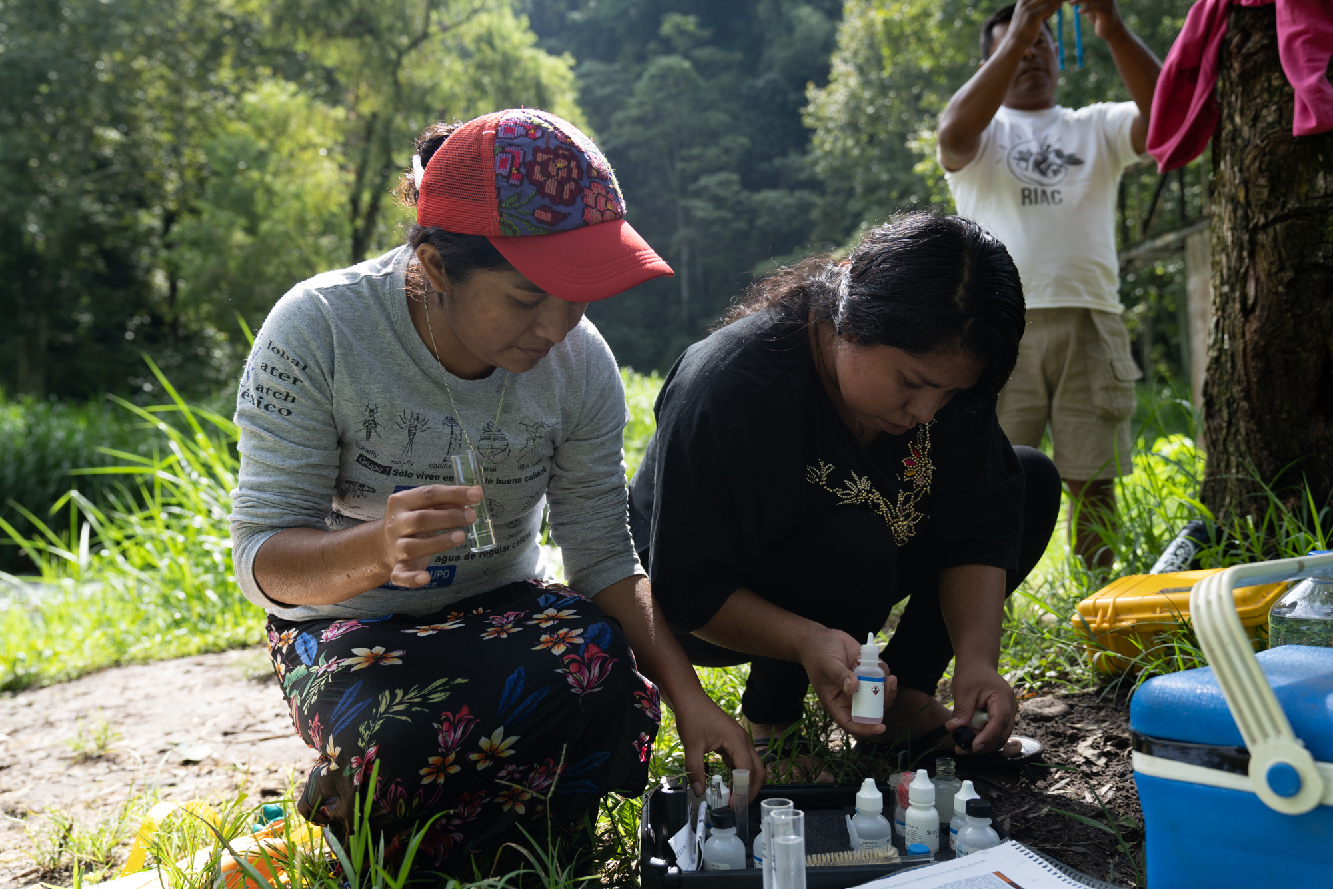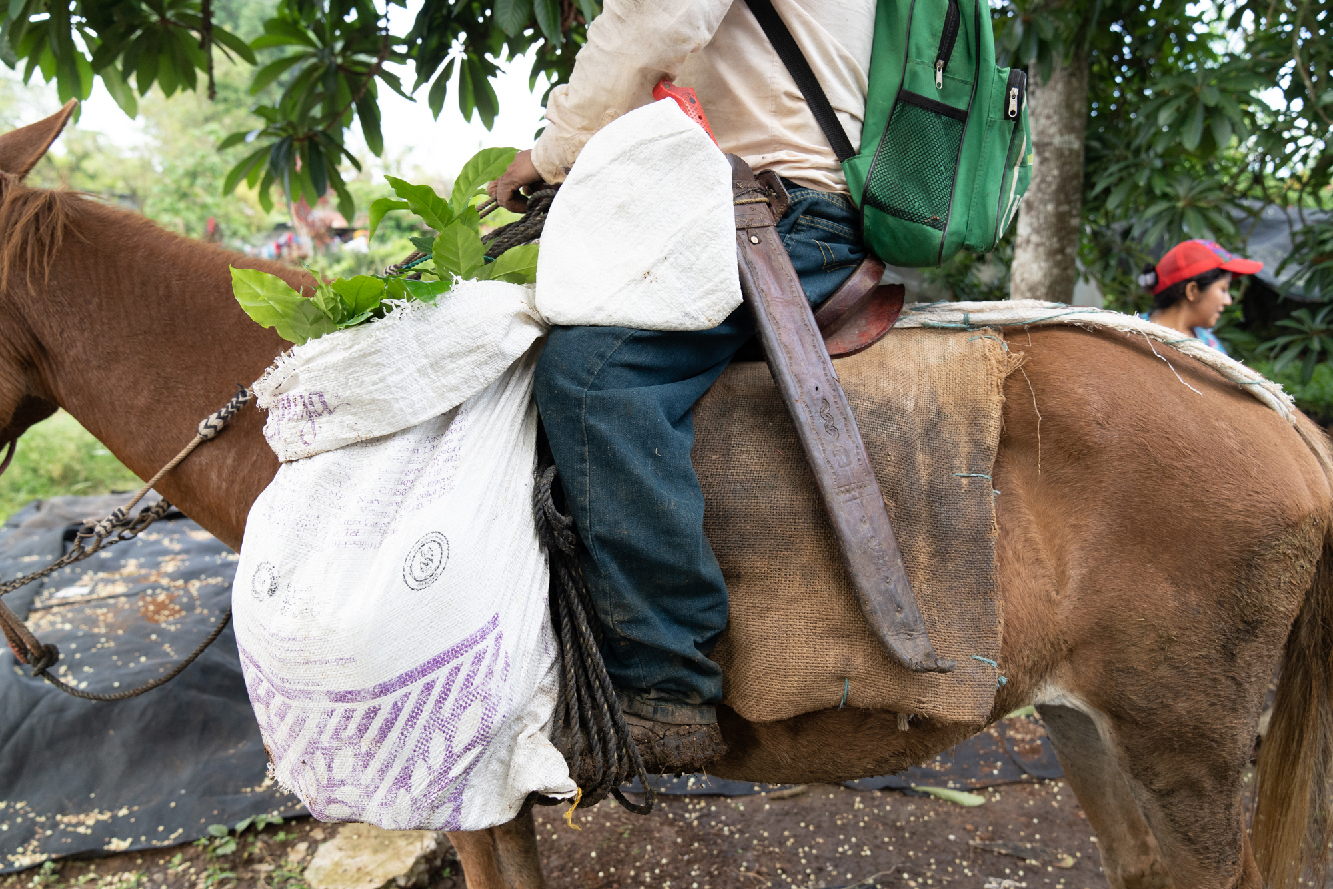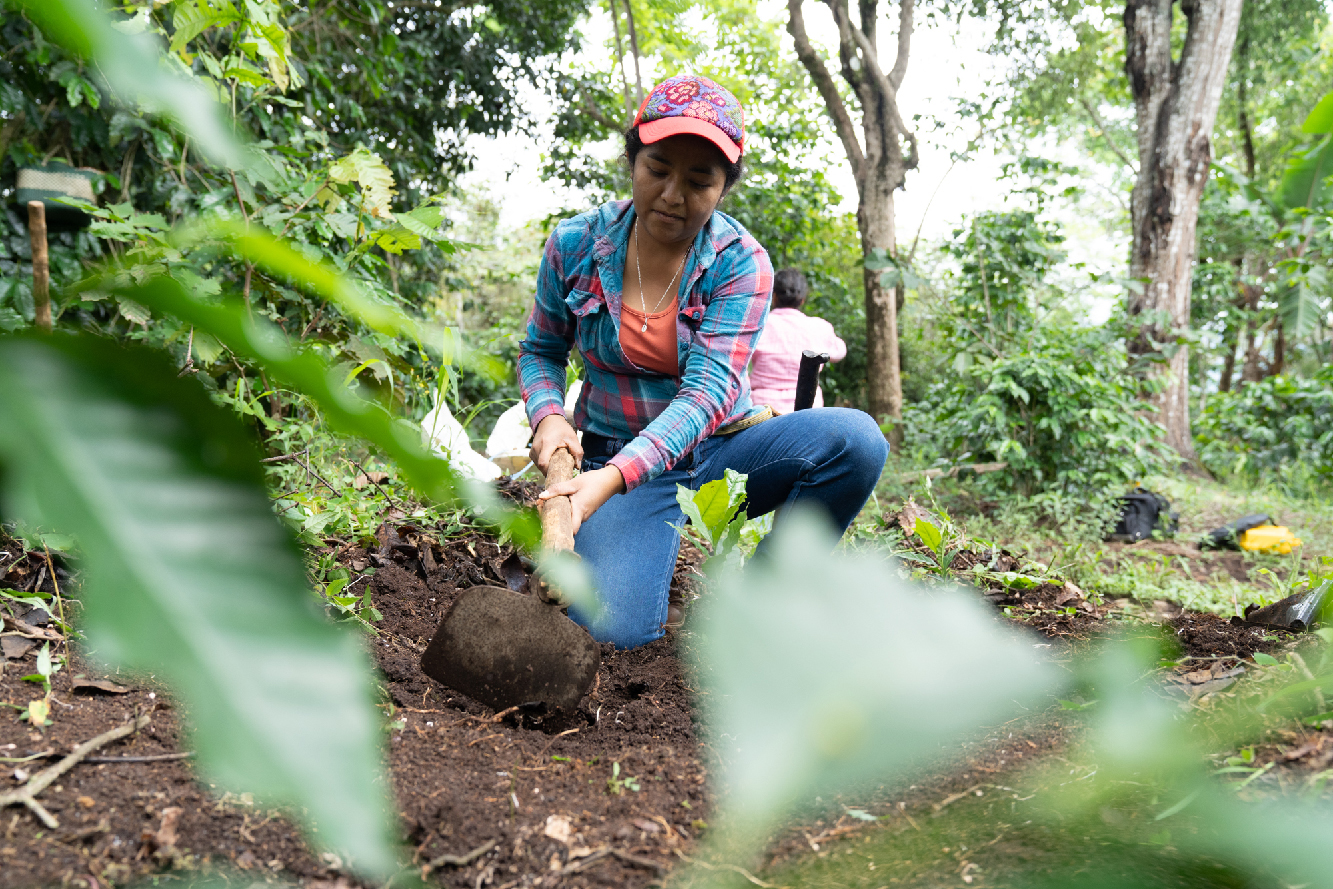The “proudly peasant” president of a women-led coffee cooperative is spreading the word about safety and health at work.
“We” harvest the coffee,“we” look after the children, “we” will persevere.

“How did you get involved with coffee? When did you get started?”
Briseida is 30 years old, formally trained in psychopedagogy, and a self-described feminist. She lives with her mother, sister, aunt, uncle, and cousin.
She first learned about coffee when she was eight years old. As a teenager, she was already helping her parents with light activities on the plantation. And today, coffee farming is such an important part of her identity that she thinks of her co-workers as family.
Briseida works every day of the year. During the harvest period, she wakes up early to go to the windmill and prepare breakfast before heading out to the plantation. Outside of harvest time, her work includes gathering firewood from dry trees for cooking, as well as planting and grafting coffee.
Her field work starts at 9 a.m. and ends at 3 p.m., when she goes back home to finish other work with her family. Together, they wash the coffee harvested the previous day.
Despite criticism from her peers, Briseida is motivated by her work and enjoys sharing her personal experiences.
To her, “a farmer is a great worker.”
A new type of training
“First health, then work. It’s important to be safe and to take care of one another,” she said. “You must know your community and act as a unit.”
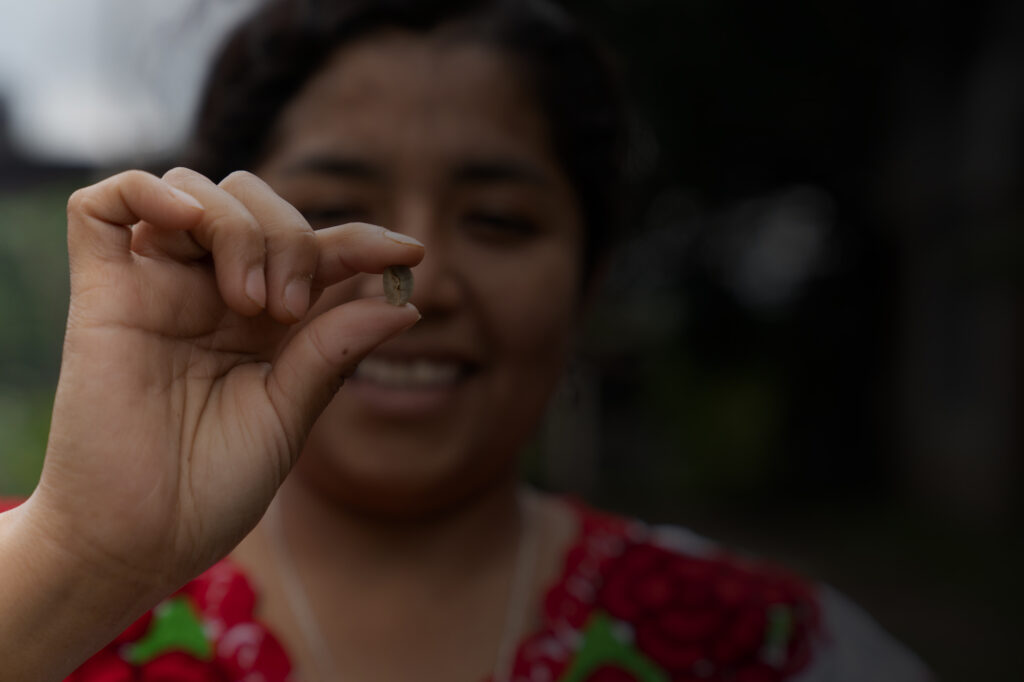
The big picture
Mexico is the world’s 12th largest exporter of Arabica coffee and the leading exporter of organic coffee, mostly destined for markets in the United States, Spain, Belgium, Germany, and Canada. In 2017, coffee production accounted for 6% of all agricultural economic units in the country.
Veracruz is one of Mexico’s most important coffee-producing areas. It’s also the state with one of the highest poverty rates in the country. And the work comes with many potential dangers.
About 98% of coffee producers are small-scale, with less than 5 hectares of crops – like Briseida and her family.
Risk factors include:
A vision for safety and health
There is no official statistical information on occupational accidents in coffee production, so it can be hard to understand where there is room for improvement. What we do know is that there is a general lack of awareness about the potential risks involved in daily tasks.
Global value chains offer opportunities to improve OSH, even – or especially – on small-scale farms.
That’s why the Vision Zero Fund promotes specific interventions to prevent work-related accidents and diseases in the coffee value chain in Mexico.
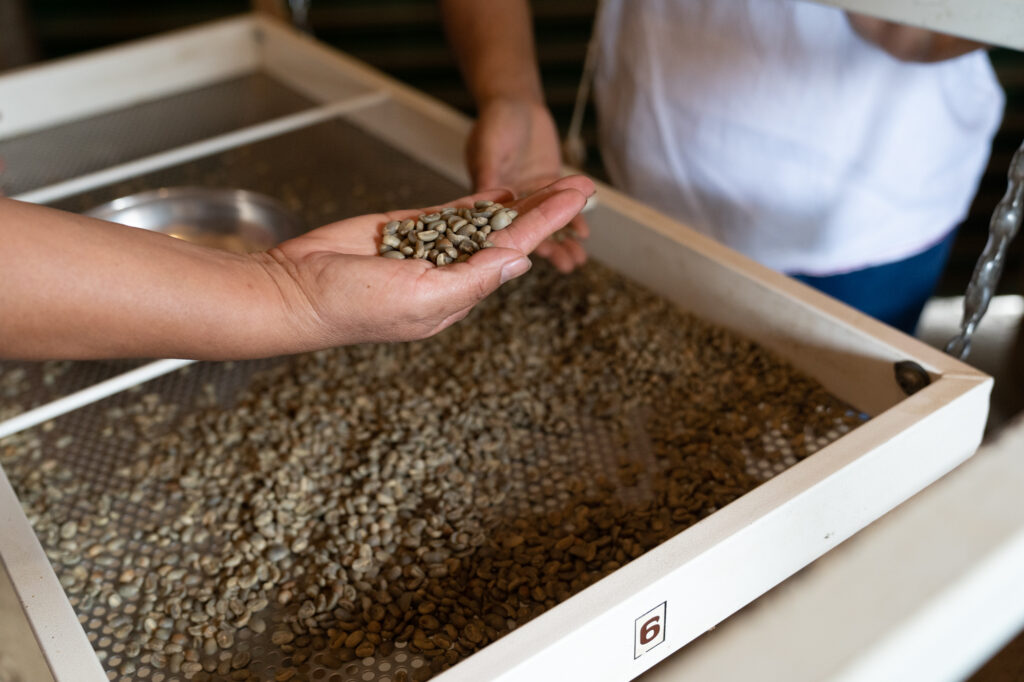
Community and OSH go hand-in-hand
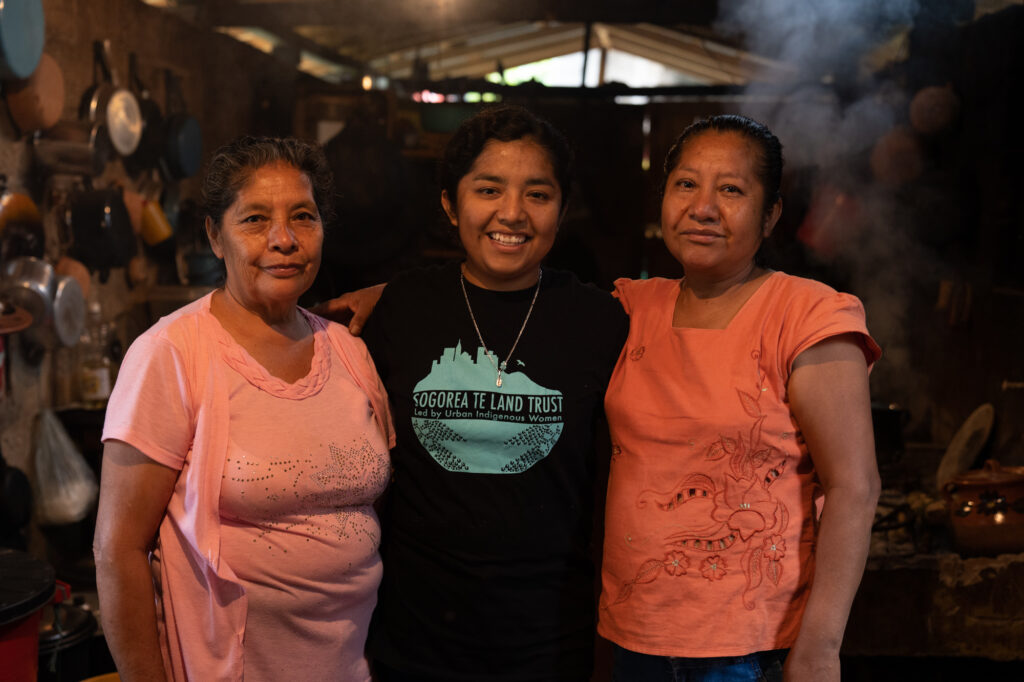

“El café es nuestra vida,”she said. Coffee is our life.
Learn more
These impact stories were produced with the financial support of the European Union.


